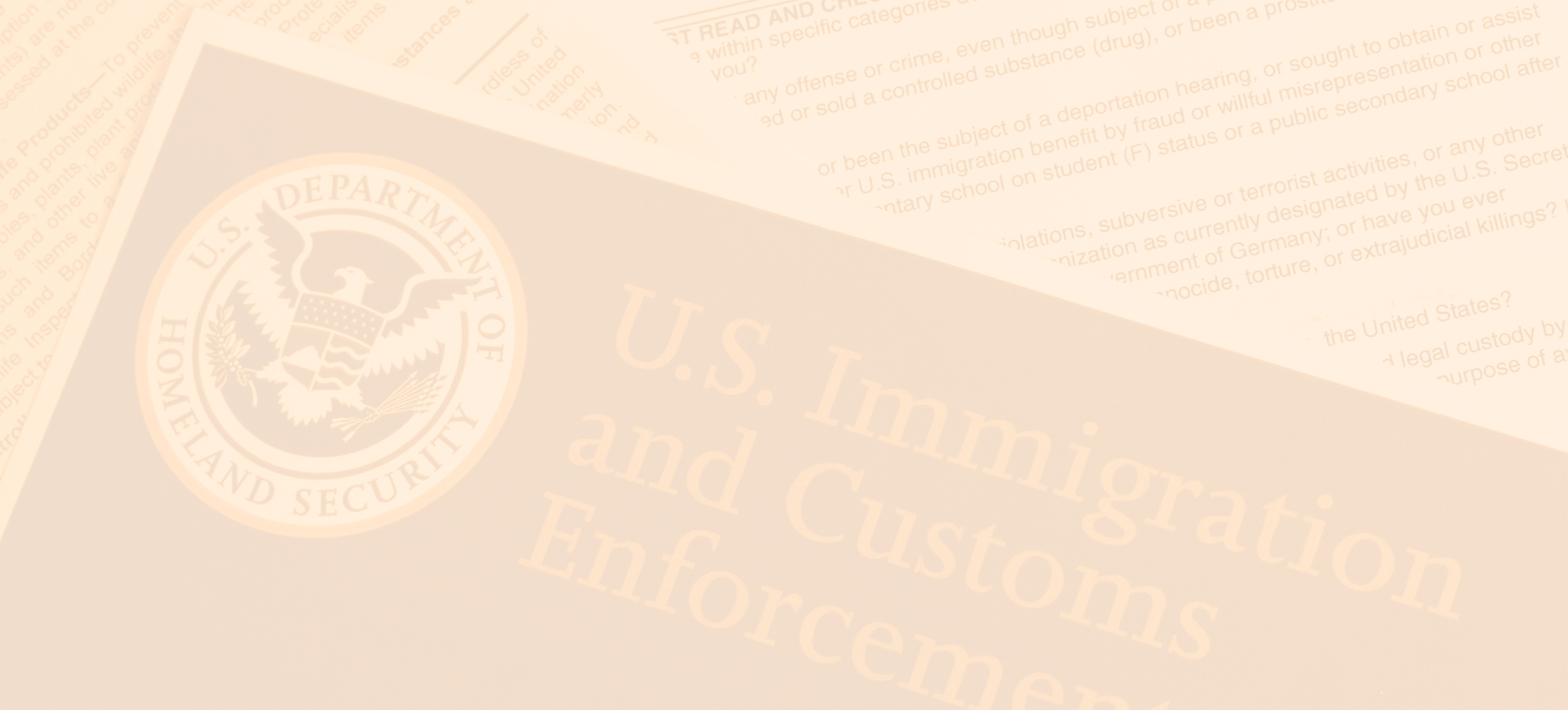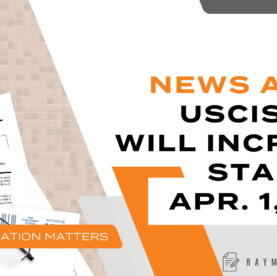For decades, Norris McLaughlin has led in preserving the rights of individuals and corporations — at each level — from the start of a case, to a trial and, if necessary, throughout the appellate phases.
Norris McLaughlin Appellate Litigation Practice area includes post-conviction relief (collateral attacks), petitions for review before Federal Circuit Courts, Administrative Appeals before the Board of Immigration Appeals and he Administrative Appeals Office, Motions to Reopen, Motions to Reconsider, Appeals from USCIS Decisions, Deportation Appeals to Appeals before the Supreme Court of the United States of America.
Federal and State Post-Conviction Relief: Returning Justice to You
Each year, thousands of immigrants are deported as a result of criminal convictions in states across the country. Often, these immigrants have been Lawful Permanent Residents for decades. At times, the Department of Homeland Security does not commence removal proceedings until years after a conviction – causing many issues for immigrant families.
To claim that one does not make mistakes in life would be an incorrect. Often, many immigrants – both lawful and unlawful – enter pleas, not knowing the consequences of those pleas. Many times, their defense attorneys fail to advise the immigrant of the deportation consequences of a plea. Other times, the immigrant is provided incorrect advice about the deportation consequences of a guilty plea. There are even times when a defense attorney advise a client to proceed to trial and not take a deal that would have rendered the immigrant non-deportable, only having been found guilty at trial for a deportable offense. When these errors occur – justice is being denied.
If you are an immigrant and have yet to enter a plea, it is important to contact Norris McLaughlin before you do so. NM’s Attorneys will work with you and your criminal defense counsel throughout plea negotiations, with the hope of working out a plea deal that would not render you deportable.
Even if you have already pled guilty and have been sentenced, your prior mistakes are not the end of your life. There are ways that immigrants facing removal because of current or convictions from years ago can remain in the United States. In addition to defending against deportation before Immigration Court, Norris McLaughlin Attorneys are known to vigorously fight to vacate underlying convictions that lead to the commencement of removal proceedings against an immigrant.
These motions to vacate convictions are permissible at the federal and state court levels. In federal courts, immigrants, through Norris McLaughlin Attorneys, have filed and succeeded on direct appeals, habeas petitions (challenging both an underlying conviction and, if an immigrant is detained in immigration custody for a prolonged period of time), motions to vacate guilty pleas, post-conviction relief motions (which are known in New York as 440 Motions and in Pennsylvania and New Jersey as Post-Conviction Relief Motions) and 2255 Motions (in Federal Courts).
Both federal and state courts have commonly referred to these motions as Padilla motions, naming them after the Supreme Court’s Padilla v. Kentucky Decision, where America’s highest court reiterated the obligation of defense attorneys to advise their clients about the deportation consequences of a respective guilty plea.
Federal and State appeals based on ineffective representation with respect to deportation consequences of a guilty plea are complicated and require the ordering and review of transcripts, evidence, prior attorney files that are provided, statements from the immigrant and those who were present when the immigrant either discussed the possible deportation consequences of a guilty plea or when the immigrant entered the guilty plea.
When an immigrant has received ineffective representation with respect to intertwining of criminal and deportation proceedings, action must be swiftly taken by the immigrant and his family. Contact Norris McLaughlin, PA today.
Federal Circuit Courts
The Federal Circuit rules regarding review of Department of Homeland Security, Board of Immigration Appeals and Immigration and Customs Enforcement Decisions are very complicated and necessitate the retaining of an experienced immigration, deportation and appellate law attorney.
A petition for review is filed by, or on behalf of, an individual seeking review of an agency decision in a circuit court of appeals. In immigration and deportation matters, a petition for review is filed to obtain review of a decision of removal (and the former deportation and exclusion) issued by the BIA. In addition, a petition for review may be filed to obtain review of a removal order issued by ICE under a few very limited specific provisions of the Immigration and Nationality Act (INA).
Section 242 of the INA, 8 U.S.C. § 1252, as enacted by the Illegal Immigration Reform and Immigrant Responsibility Act of 1996 (IIRAIRA) and amended by the REAL ID Act, contains the jurisdictional basis for petitions for review and sets out rules and procedures governing petitions for review.
There are several Federal Circuit Courts of Appeals. Any Petition for Review must be filed in the Circuit Court where the Immigration Court that ordered you removed is located. For example, if you were ordered removed at New York’s Immigration Court located at Federal Plaza, your Petition for Review would be filed in the Second Circuit, which encompasses the New York City Immigration Court System. A map of the federal circuits is above for your review.
Direct appeals to federal courts in cases involving removal due to criminal convictions have largely but not totally been eliminated. You may still file a Petition for Review if your claim is that your criminal conviction is not a removable offense or that the government did not prove your alienage. If you were ordered removed before October 30, 1996, you may still be able to file a petition for review to the Federal Circuit Court with jurisdiction over your case.
If your case concerned asylum, withholding or the Convention Against Torture, you must file a petition for review with the Federal Circuit Court in the judicial district where you immigration court decision was made.
Your Petition for Review must be filed within 30 days of the BIA decision you are appealing.
Norris McLaughlin has handled Petitions for Review across the United States, including the Second, Third, Fourth and Ninth Circuit Courts of Appeals. This is often, the final stage in one’s deportation proceedings and is, essentially, the final legal (court ordered) remedy that could be provided. It is important that you retain the top attorneys to handle this level of appeal.
Other Types of Appeals
Immigration Appeal Details
If your immigration petition or application has been denied or revoked by the USCIS or DOL, you may have a valid basis for an appeal. Appeals are generally allowed where the government agency made a mistake of law or fact or there is new evidence that would make your case approvable. There are generally three avenues of appeal: Motion to Reopen, Motion to Reconsider and an Appeal. When an application is denied, the USCIS or DOL will send a notice to the Petitioner and describe which types of appeals are allowed for the particular case.
Motion to Reopen
A Motion to Reopen is generally employed where there are new facts, changed conditions or exceptional circumstances.
Motion to Reconsider
A Motion to Reconsider is generally employed where the government agency made a legal error or there is a change in the law.
For whom is an Immigration Appeal appropriate?
Any Petitioner for an immigration benefit whose case was denied. Generally, the Petitioner has between 30-33 days to file an appeal but additional time to respond may be granted in certain cases. Failure to make a timely appeal renders the decision final.
What are the requirements for filing an Immigration Appeal?
In order to file a successful immigration appeal, the Petitioner must timely file Form I-290B to USCIS or the AAO or in writing to BALCA. All appeals must provide a legal basis for the appeal to be sustained, Any appeal that fails to state a legal basis will be summarily dismissed.
Call 1-888-440-4-USA for more information.



